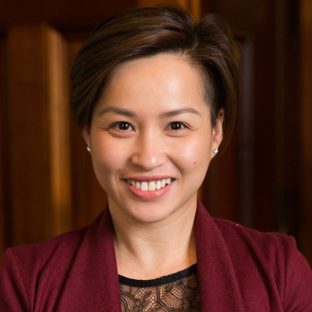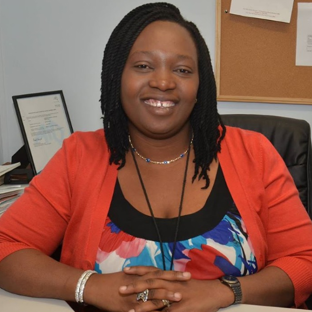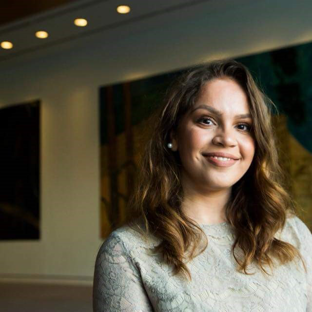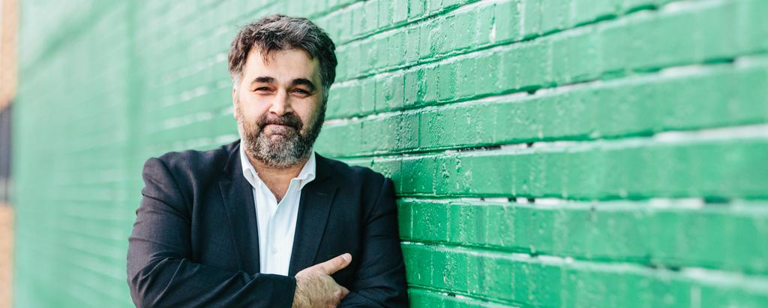In The Power of Hope, Asylum Seeker Resource Centre founder Kon Karapanagiotidis describes how he prevailed over a childhood of racism, bullying and isolation – and went on to create one of Australia’s largest and most influential human rights organisations. ‘Hope is only exhausted if we forsake ourselves,’ he writes. ‘It is both our sanctuary and our destiny to live a life with love, belonging, connection and community.'
To celebrate his heartfelt memoir, Karapanagiotidis will talk about the personally and politically transformative potential of hope – and host a night of hope-driven storytelling with Alisha Fernando, Banok Rind, Abiola Ajetomobi, Leila Gurruwiwi, Jane Vadiveloo and Carolina Cabezas.
Paperback will be our bookseller at this event.
Featuring

Kon Karapanagiotidis
Kon Karapanagiotidis is the CEO and founder of the Asylum Seeker Resource Centre, the largest independent human rights organisation for refugees and people seeking asylum in Australia. They assist thousands of people each year, with the help of over 1200 volunteers and 125 staff.
Kon grew up in a working-class family in a small country town in Victoria. His personal experience of racism and witnessing the exploitation of his parents in factories and farms planted the seeds for his passion for human rights. He started volunteering at a centre for homeless men at the age of 18, and went on to do volunteer work at 24 other charities. He also completed six degrees, becoming a lawyer, social worker, and teacher. Kon founded the ASRC at the age of 28.
His work has been recognised with over two dozen awards and honours including an Order of Australia Medal (OAM) and a Churchill Fellowship. He was finalist for Australian of The Year (Victoria) and the Human Rights Medal, as well as Citizen of the Year in his local community. His memoir, The Power of Hope is published by HarperCollins Australia.

Alisha Fernando
Alisha Fernando is the Associate Director of Diversity and Inclusion at the University of Melbourne where she is responsible for leading the Diversity and Inclusion portfolio across the University, with a strong focus on implementation of programs and initiatives supporting 5 key pillars: Gender, LGBTI+, Disability, Mental Health and Wellbeing, Indigenous, Ethnicity and Race.
Alisha was born in Vietnam in 1980. Fleeing Vietnam in 1982 with her parents and uncle, they were rescued by a Dutch freight ship in the South China Sea. The Dutch ship brought Alisha and her family to a refugee camp in Pulau Bidong (Malaysia) where they received refugee status and granted safe haven to Australia.
Alisha and her family arrived in Tasmania in early 1983 where they embarked on rebuilding a new life before settling in Melbourne. She completed her VCE before a Bachelor of Business Banking and Finance at Monash University.
Alisha’s early career experience included credit assessment, business banking, project management, strategy and people leadership. All the while, Alisha continued pursuing her passion for advocating for the under-represented in society. In 2015 her personal and professional vocations aligned and Alisha took on the role of Inclusion Program Manager at ANZ. This role focused on program management and delivery allowing her to leverage her extensive experience in operational business management, strategy, project management and implementation. Specific to process improvement, the role required her expertise in change management, documentation, training, development, stakeholder and people management.
Alisha’s attention was in specialised community and industry programs focused on Indigenous Australians, Asylum Seekers / Refugees, People with Disabilities, LGBTI+ awareness, support and engagement, Community Giving, Women in Leadership and Family Violence initiatives. Through her work in these areas she won the 2017 Business Inclusion award from the Migration Council of Australia for the expanded Refugee work placement program; developed and launched the Indigenous Cultural Awareness public facing module, currently used by various industry partners including CBus, Australia Post, BHP, Department of Education QLD and Hudsons ANZ recruitment team; delivered ANZ’s first Reconciliation Action Plan since 2008; owned and managed the Accelerating Banking Experiences for Women Program with more than 20 women graduating and moving into senior management positions – which was featured in Bain’s March 2017 Report as best practice in women’s leadership programs; and delivered a new Indigenous traineeship strategy supported by the launch of a new marketing video.
Alisha is a recipient of a full scholarship to the Victorian Government's 2018 Joan Kirner Young and Emerging Women’s Leaders Program, which enables up-and-coming female leaders to obtain the critical skills, networks and experiences required for advancement. It will empower women to progress as influential leaders in their communities, sectors and areas of interest.

Abiola Ajetomobi
Abiola Ajetomobi is the Director at the Asylum Seeker Resource Centre (ASRC) Innovation Hub. Abiola has more than 17 years management experience, in local and state government as well as in not for-profit organisations, both here and in overseas.
With a background in business, humanitarian, accounting, financial service and social enterprenuer, Abiola’s most recent qualification is a Graduate Certificate of Management of Not for Profit organisations from Australian Catholic University.
Originally from Nigeria, and fluent in English and Yoruba, She brings a strong focus on innovation and developing processes to bring stakeholder ideas into organisational activities and decision making. In 2015 she won the future Leader Award at the International Women’s Day Awards in the southern metropolitan region of Melbourne. Abiola’s current role is with the Asylum Seekers Resource Centre where she oversees empowerment programs and services that fosters people seeking asylum‘s ability to thrive.

Banok Rind
Banok Rind is a proud Yamatji Badimaya woman from Western Australia. She is a registered nurse and currently the Deputy Executive Officer at the Koorie Youth Council. Banok has a background in Aboriginal health and wellbeing, and advocacy within the Aboriginal mentoring, leadership and health space.
She has worked extensively in cultural competency within the university and health sector as well as an associate lecturer for Indigenous Health at RMIT University. Her work heavily highlights the ongoing institutional racism prevalent within health services across the country, reducing health disparities between Indigenous and non-Indigenous people and is a representative of the Close the Gap campaign.
Carolina Cabezas
Carolina is a PhD candidate in the Faculty of Education at Monash University. Her research focuses on multilingualism and multilingual education in the early years, exploring how young children, educators and families negotiate and practice languages in early childhood classrooms. Carolina’s interests include autoethnographic and post qualitative research approaches, as well as the use of performance and poetry as methods of inquiry in education research.

Jane Vadiveloo
Jane Vadiveloo is the founding CEO of Children’s Ground. She has a Masters in Forensic Psychology and has a 20-year history leading reform and services provision with communities experiencing extreme disadvantage and trauma. She has lived in the Northern Territory for 19 years and has over 30 year connections with Arrernte people in Central Australia.
In 2000 Jane founded Akeyulerre, one of the first organisations based on First Nations knowledge systems in traditional healing and wellbeing. She has worked with children, families and communities at high risk, establishing strength and justice based approaches to achieve long term change. She has worked with William Tilmouth for 15 years, culminating in the foundation and direction of Children’s Ground. Children's Ground was created as a 25 year approach to ensure that future generations of children are afforded equity, access and justice to determine their futures – to have quality education, health, social and economic opportunities that privilege their first culture within a global context.
Jane has consulted to Virgin Unite, the Northern Territory and Federal Governments, and Aboriginal Organisations in the Northern Territory. Jane was one of the Westpac Australian Financial Review 100 Women of Influence in 2014.

Leila Gurruwiwi
Leila Gurruwiwi is a proud Yolngu woman originally from Galiwinku on Elcho Island in North East Arnhem land. Growing up most of her life in Bendigo, Victoria, Leila finished Year 12 in Melbourne and six months after finishing her VCE was thrown into the deep end when The Marngrook Footy Show was commissioned by NITV to begin as a television show in 2017.
Since then Leila has been a regular member of the Marngrook Footy Show family, presenting the news, injury report, interviewing current and former Indigenous and non-Indigenous footballers as well as having a women’s tipping segment called 'Tiddas Tips', in the past two years Leila has been a regular panellist alongside Gilbert McAdam, Grant Hansen and Shelley Ware.
Leila has also dabbled in acting in shows including KAGE’s Team of Life, ABC’s Secret River and ABC’s Glitch.
Leila has emceed a number of events in Victoria and interstate and is also a cultural awareness speaker in schools across Melbourne and is currently working part time as the Indigenous Support Worker at the Pavilion School in East Preston where she helps create a culturally safe space for Indigenous students to study and create passion for the Indigenous culture in both Indigenous and non-Indigenous students and staff alike.
